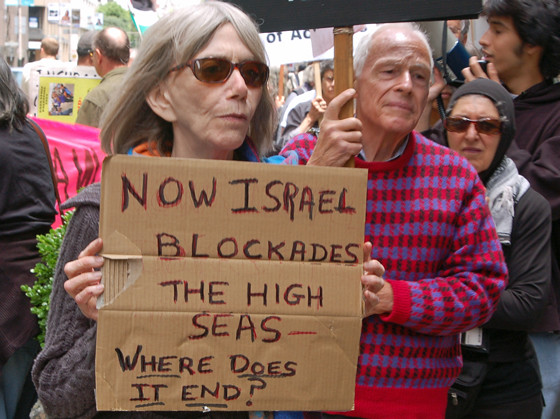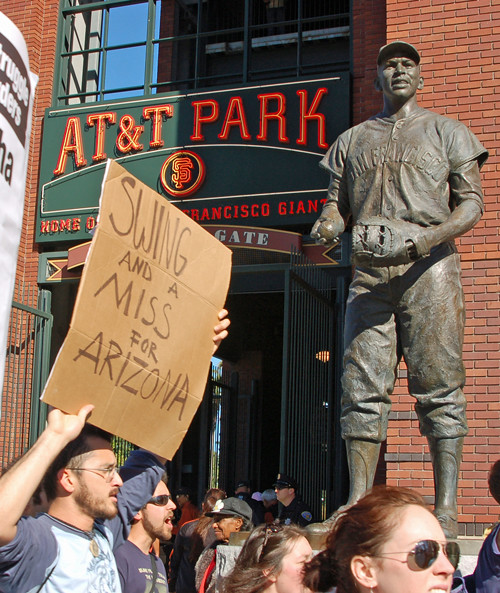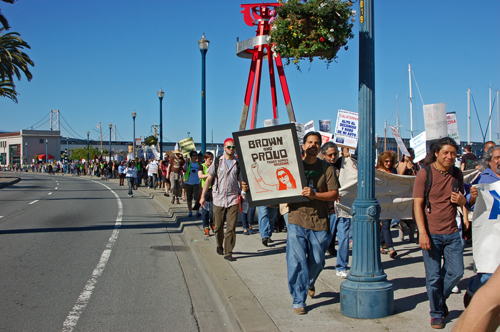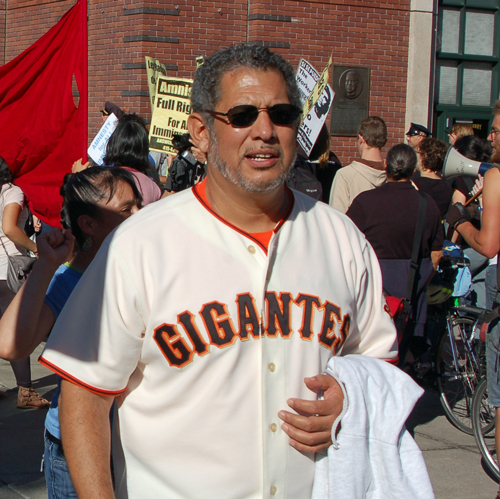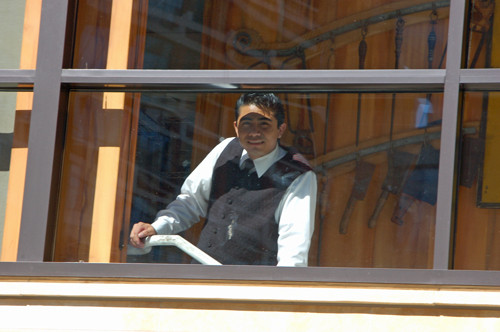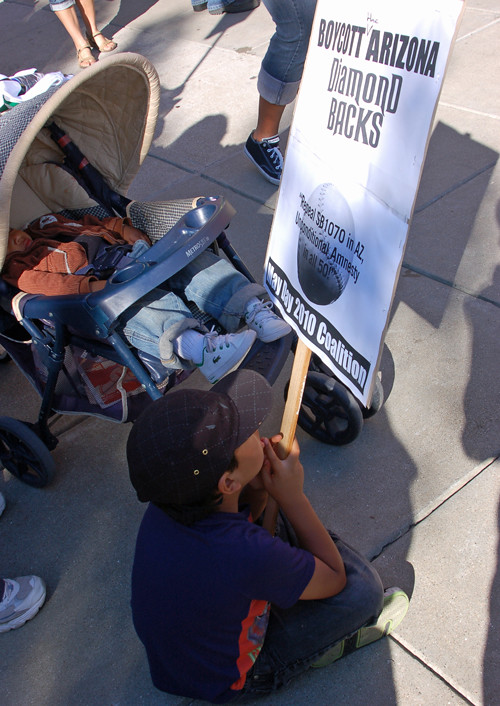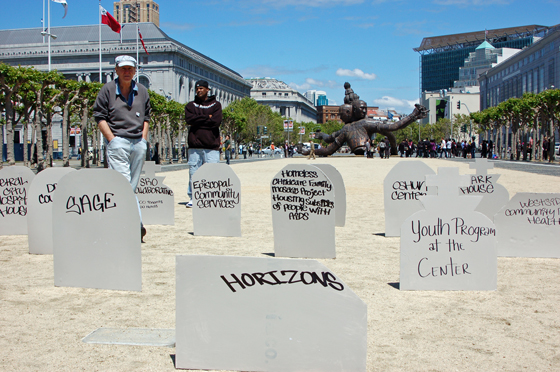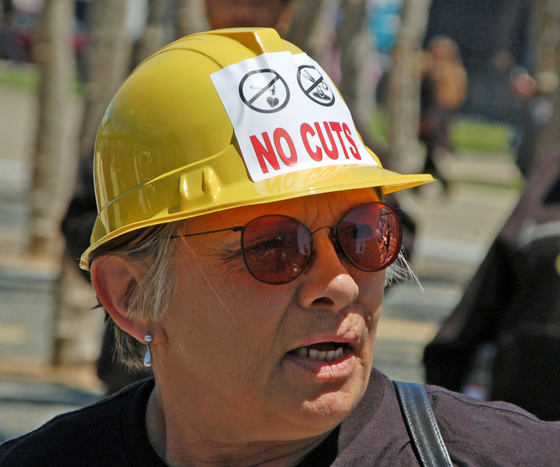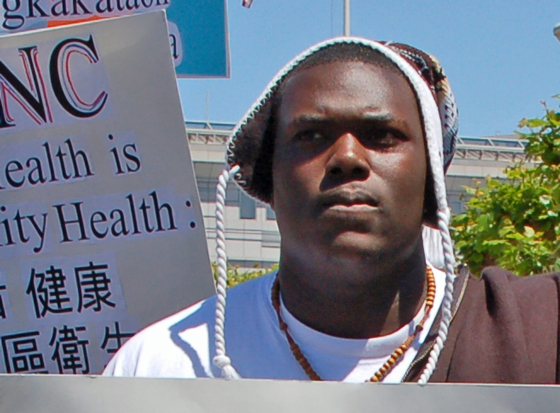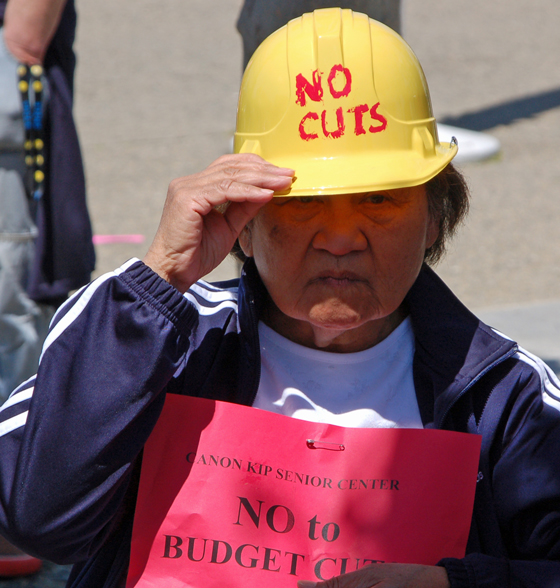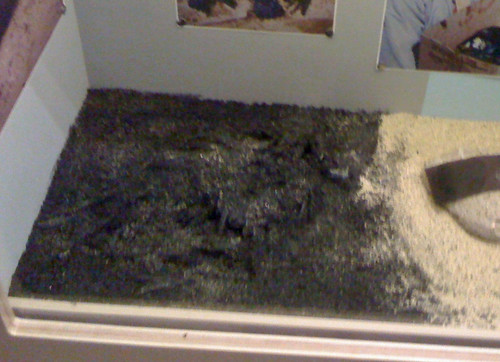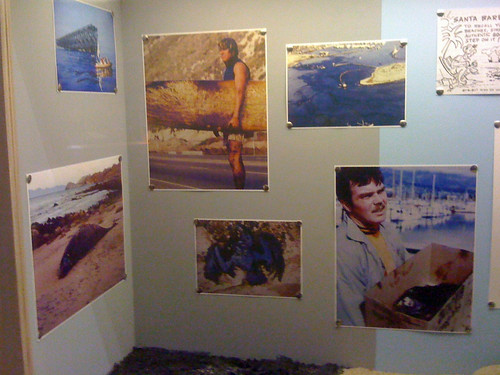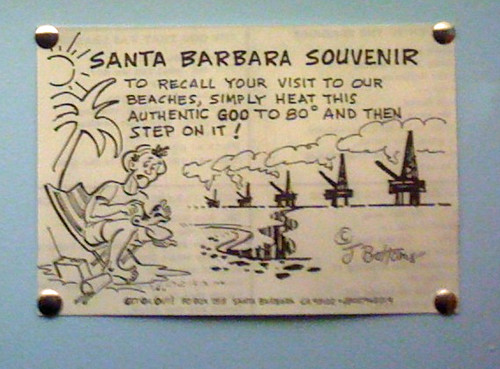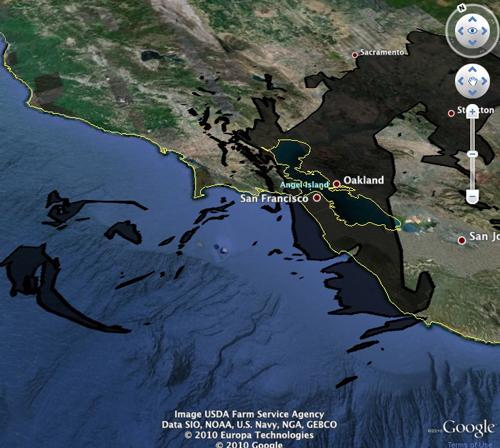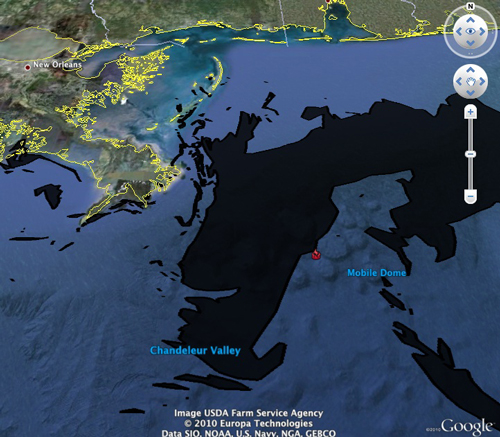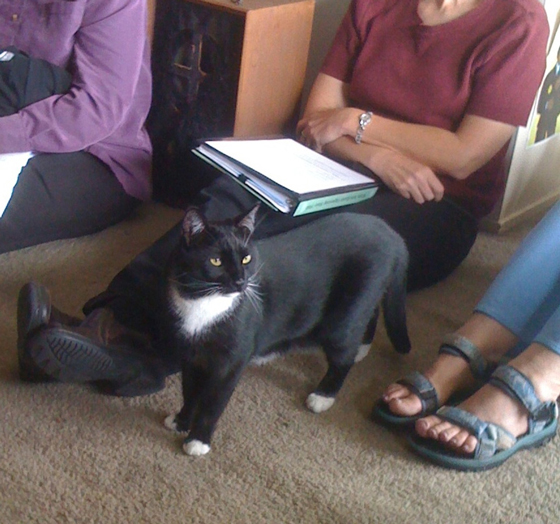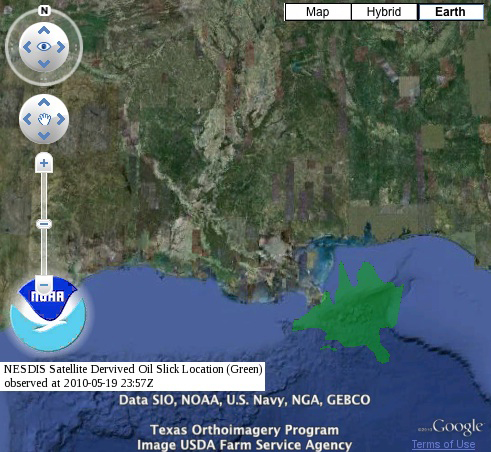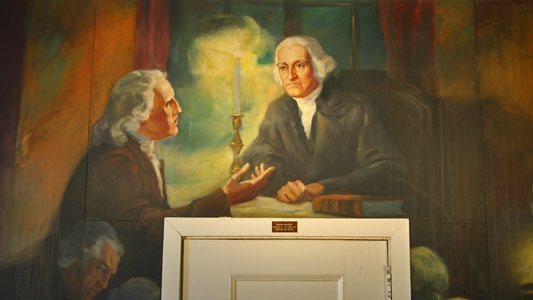
I've written before (
here and
here) about my bafflement about the case of one Omar Khadr, the Canadian teenager captured in Afghanistan in 2002,
threatened with rape by a U.S. interrogator at Bagram, held at Guantanamo ever since, and now on trial before the improvised Military Commissions that are such a prominent part of the Bush administration's legacy of corruption of law and justice.
Khadr is charged with throwing a grenade at U.S. troops during the U.S. invasion of Afghanistan, killing one soldier. His Islamist father had moved the family from Toronto to Pakistan and then Afghanistan where his children apparently played with Osama bin Laden's children when younger. In 2002, Khadr was staying with other Islamist youths when he allegedly threw the grenade. The house where he was located had been bombed; entering U.S. troops shot him twice from the back.
The story of the events that included Khadr's capture is awful, frightening -- and very confused. The more I have read about this, the more I have wondered under what law this kid has been charged.
I mean, come on ... suppose the United States had been invaded by some very alien, very scary people -- say North Korean true believers in Kim Jong Il. And then a Canadian teenager had responded to these strange, dangerous cultists by grabbing up a gun that his survivalist neighbor had hidden away. If he shot one of the invaders, wouldn't we celebrate him as a precocious hero? Of course we would. Being on the other end of the grenade, we don't think that way -- but it doesn't take much imagination to flip the story.
Anyway, now we are charging Khadr with murder. Today Scott Horton spelled out in
Harpers how U.S. authorities make that case.
In the military commissions prosecution of the Canadian child warrior Omar Khadr, the United States charges murder and attempted murder in violation of the laws of war, in connection with an incident in which a grenade was hurled at American soldiers, leaving one dead and injuring several others. The theory underlying this charge is that Khadr was not a member of any lawful armed force, and his throwing a grenade was an unprivileged act of homicide or attempted homicide.
It’s uncontroversial that throwing a grenade with the intention of killing others is a criminal act that can be charged as homicide or attempted homicide unless it’s a privileged act. However, there is a strong opinion among law-of-war scholars to the effect that it is not a violation of the laws of war, but rather a violation of the criminal law of the nation where the incident occurred.
Oh, I get it. George W. Bush said all these guys were "unlawful combatants" so prosecutors at the military commissions have to stretch and rejigger the laws to make the actions Khadr is charged with fit that pre-determined category. Maybe Afghanistan could have charged him with murder, but it seems very unlikely they'd bother, given the 30 years of warfare in that unfortunate country.
Horton goes on to explain that the tortured (!) distortion of the international law that the U.S. is asserting in order to have a case to charge Khadr is in direct conflict with what the United States claims about its right to designate individuals as targets for drone strikes in countries where we not at war. What's the difference between Khadr's crime and some civilian contractor or CIA spook who pushes a button on a computer console to kill a person somehow designated a terrorist? Where's the legal justification for that?
Horton is very convincing that the United States' infatuation with its ability to kill designated enemies at the push of a button is creating a legal contradiction. Not only did contractors design and fabricate the drones, they also play the key operational role in maintaining the drones, in arming and piloting them. The finger behind the trigger that releases death on the villages of North Waziristan is likely as not that of a civilian contractor. Moreover, the United States is now relying heavily on at least six private security contracting firms to do on-the-ground work in the Afghanistan-Pakistan border area, much of it inside of Pakistan’s Northwest Frontier Province. These civilian contractors are collecting information used to guide the drones to their strikes; they serve as the “eyes” of the drone force. They are usurping a traditional core military reconaissance function.
All of this is occurring at the same time that the United States, as a matter of legal policy, denounces prisoners taken in the current hostilities as “unlawful” or “unprivileged” combatants and presses charges against them for using lethal force. But private security contractors and CIA operatives are every bit as “unlawful” and “unprivileged” under the laws of war. America’s posture on this issue is shamefully hypocritical, and needlessly so.
Both the Horton articles linked here are clear and succinct. And I didn't even go into his sensible discussion of the dangerous precedent the U.S. is setting for future wars by its reliance on drones -- after all, the U.S. monopoly of this technology won't last. Go read them both.
Image from the Vancover Sun which, like many Canadian papers, is following Khadr's case closely. The paper broke the story of dissension within the Obama administration over the confused legal theory behind the Khadr prosecution.
